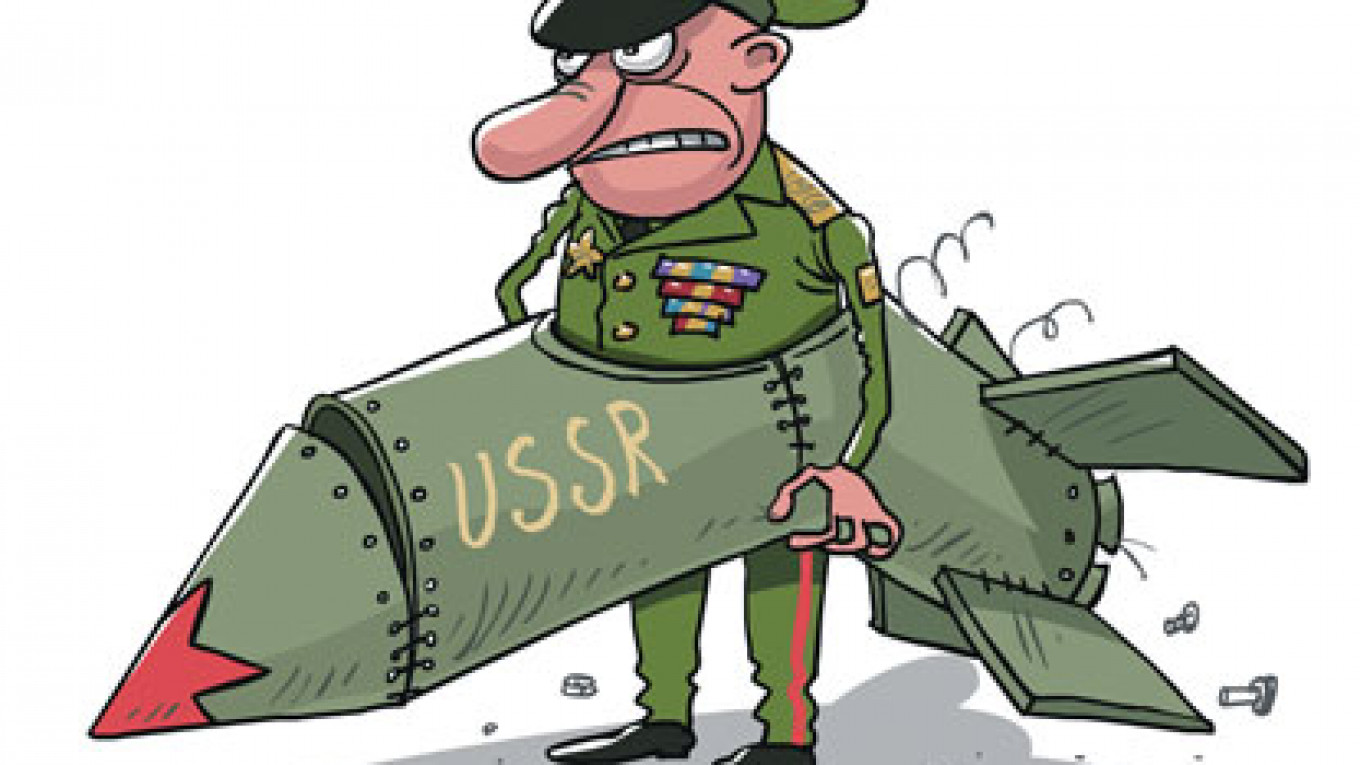Last week, The New York Times reported that Russia is testing a new medium-range missile so it can withdraw from the Intermediate-Range Nuclear Forces Treaty of 1987, or INF. Then, Mikhail Ulyanov, the disarmament director at the Foreign Ministry, told Interfax that Moscow is prepared to withdraw from the Strategic Arms Reduction Treaty, or New START treaty, which Russia and the U.S. signed in April 2010.
For the past eight years, Moscow's policy toward the U.S. has been a parody of nuclear deterrence. The Kremlin pretends to seriously believe that Russia's security depends on whether it can obliterate half of the U.S. if Russia were to incur an initial U.S. nuclear strike.
After the U.S. stopped the senseless discussions on missile defense, there was nobody for the Russians to complain to. This, it would seem, was the main factor that prompted Russian authorities to start talking about withdrawing from the INF and New START treaties.
But in the age of globalization, deterrence has lost most of its meaning. What is the point of even discussing a "retaliatory strike" against the U.S. when the financial interests of Russia's ruling elite are invariably linked to the U.S. in one form or another?
Yet the "deterrence–parody game" has given President Vladimir Putin a way to verbalize his standard discontent against the U.S., which, he believes, is plotting a "color revolution" against Russia.
Yet, this deterrence game came to a halt after the White House stopped talking to Moscow about missile defense. The U.S. simply got fed up with hearing the same line from Russian officials time and time again — that "U.S. missile defense installations in Europe threaten Russian national security." This line even continued after the U.S. cancelled Phase 4 of its European missile defense program last year, a component that Russia fiercely opposed.
After the U.S. stopped the senseless discussions on missile defense, suddenly there was nobody for the Russians to complain to. This, it would seem, was the main factor that prompted Russian military leaders and diplomats to start talking about withdrawing from the INF and New START treaties.
All of this treaty-withdrawal talk is drivel. After all, the number of Russia's strategic weapons are well below the limits imposed by the New START treaty. So the treaty decreases the U.S. arsenal only, not Russia's. It will take Russia until 2028 to reach the lower limits imposed by the treaty. Therefore, if Russia withdraws from the treaty, it will be only shooting itself in the foot.
Similarly, there is no point in withdrawing from the INF treaty because it will be nearly impossible for Russia to produce these mid-range weapons even if it wanted. The problem is not binding treaties but a lack of budgetary funds and industrial capacity.
Even if the U.S. treated Russia seriously enough to enter an arms race with Moscow, Russia would never be able to compete with the U.S. Putin understands this well, and this is why he has never dared to carry out any of his threats against the West with concrete actions. For example, the moment news reports in the German media suggested in December that Moscow had already deployed Iskander missiles in the Kaliningrad region, Putin quickly responded by saying that no decision had been taken on the matter. Once again, lots of Russian bark but no bite.
So in reality, all of Russia's foolish bluster about withdrawing from the INF or New START treaties is just another clumsy maneuver intended to scare the U.S. and bring it back to the missile defense negotiating table. And that would serve just one purpose: to blame the U.S. once again for all of Russia's problems.
Alexander Golts is deputy editor of the online newspaper Yezhednevny Zhurnal.
A Message from The Moscow Times:
Dear readers,
We are facing unprecedented challenges. Russia's Prosecutor General's Office has designated The Moscow Times as an "undesirable" organization, criminalizing our work and putting our staff at risk of prosecution. This follows our earlier unjust labeling as a "foreign agent."
These actions are direct attempts to silence independent journalism in Russia. The authorities claim our work "discredits the decisions of the Russian leadership." We see things differently: we strive to provide accurate, unbiased reporting on Russia.
We, the journalists of The Moscow Times, refuse to be silenced. But to continue our work, we need your help.
Your support, no matter how small, makes a world of difference. If you can, please support us monthly starting from just $2. It's quick to set up, and every contribution makes a significant impact.
By supporting The Moscow Times, you're defending open, independent journalism in the face of repression. Thank you for standing with us.
Remind me later.







